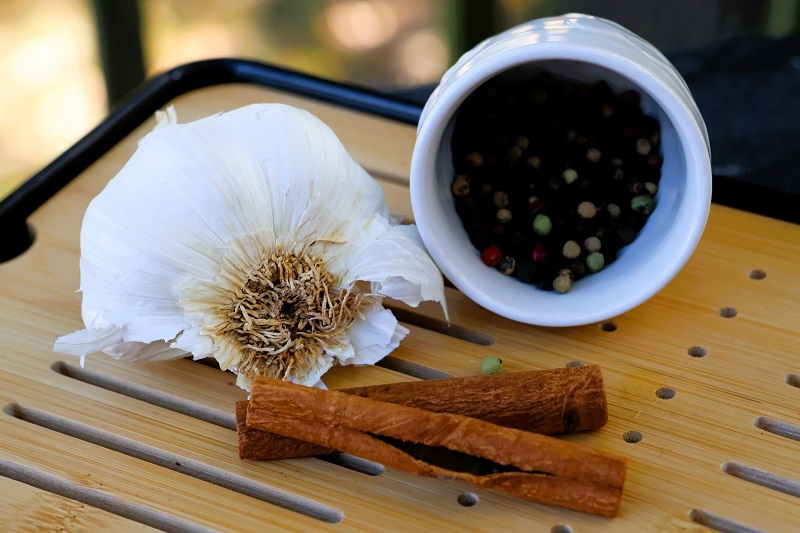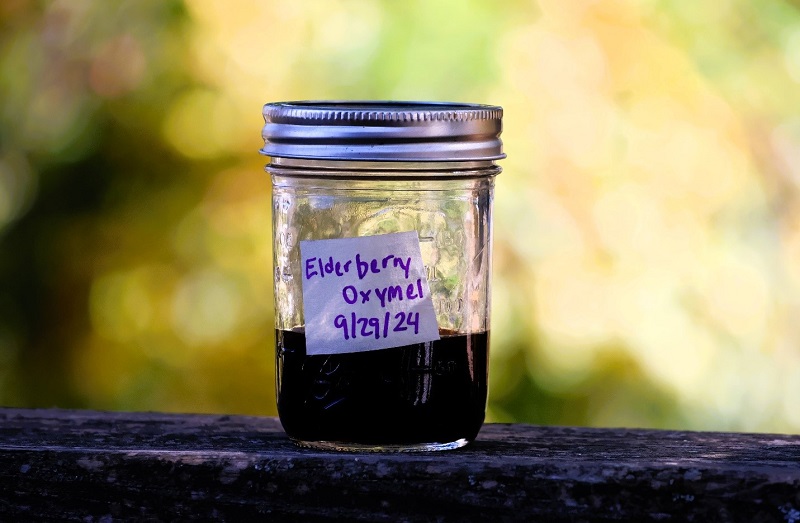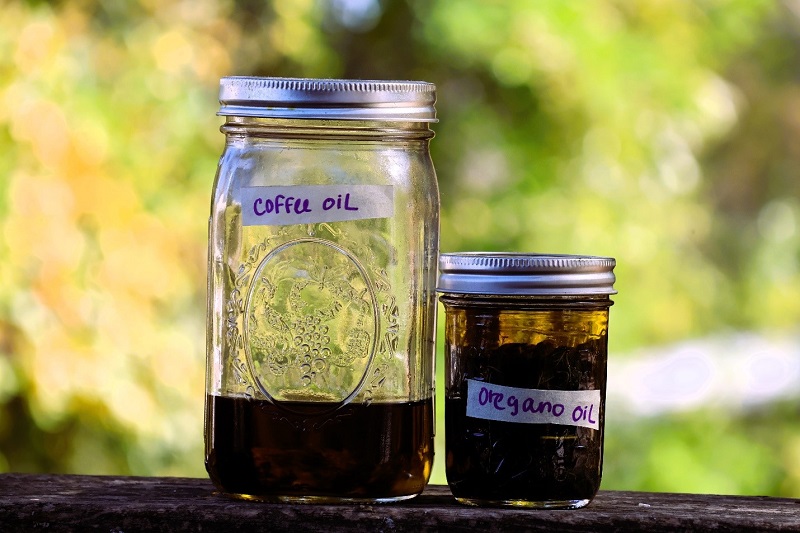Wish to omit alcohol from the drugs cupboard?
There are many causes to keep away from it — possibly it’s too costly, tastes horrible, otherwise you don’t wish to give it to the kiddos. The excellent news is that many different methods to make natural extracts exist.
Learn on to find the preferred alcohol-free strategies, study their variations, and discover out which is greatest for you!
Getting Savvy With Solvents
A solvent (aka a menstruum) can break down plant matter and draw out its medicinal constituents.
Most herbalists are likely to lean closely on alcohol as a solvent of alternative. It’s simple to acquire, shelf-stable, and extremely efficient. Nonetheless, alcohol isn’t the one menstruum round.
There are nonalcoholic choices, too — although many traditionalists will likely be fast to level out that if a tincture doesn’t include alcohol, it could actually’t actually be known as a tincture.
You would possibly hear totally different preparations known as elixirs, oxymels, or tonics. However the reality stays: these are medicinal extract preparations made a lot the identical approach you’d make a tincture.
So, what sorts of solvents can you employ? Vinegar, honey, glycerin, oil, or a mixture thereof can all act as options, relying in your wants.
Vegetable Glycerin
Glycerin is a transparent, thick, odorless liquid that’s candy with a bitter aftertaste. It’s paying homage to erythritol, and plenty of assume it tastes good. Like erythritol, vegetable glycerin is definitely a kind of sugar alcohol however is unhazardous and non-intoxicating.
Glycerin might be the preferred modern-day different to alcohol. Preparations utilizing it are generally known as glycerites and are sometimes marketed as alcohol-free tinctures.
Glycerites have rather a lot going for them. They’re simple to make, comparatively cheap, and do a swell job extracting numerous plant parts. The shelf life is nothing to cough at, both — you’ll be able to anticipate glycerites to final 3-5 years for those who retailer them appropriately.
Does It Work?
You’ll typically hear individuals making blanket claims that glycerin merely isn’t as efficient as alcohol or that glycerin is more practical than alcohol — neither is true; it simply is dependent upon what you’re extracting.
For instance, glycerin may be very efficient when extracting polyphenols like these in some fruits. One analysis examine highlights that glycerin can extract extra polyphenols than alcohol below sure circumstances. On the identical time, one other touts its efficacy with flavonoids and chlorophyll.
Nonetheless, glycerin will not be as efficient as pure alcohol at breaking down powerful barks, resins, or mushrooms. Due to this fact, it isn’t appropriate for each utility.
Sadly, there isn’t any grasp record (but) of herbs and their very best solvent. We don’t have that a lot analysis, however what we do have signifies that glycerin can substitute for alcohol in lots of instances.
Vinegar
Vinegar is a prevalent ingredient in preparations like fireplace cider and a unbelievable preservative for issues like pickled mushrooms and sauerkraut. Which means you most likely have already got some at house, which strikes it up a peg, for my part.
Preparations utilizing vinegar as a solvent are generally known as acetum options or acetic macerates. Folks have been utilizing acetic macerates for 1000’s of years, most likely so long as we’ve used alcohol.
Does It Work?
One examine analyzing phenolic acids, anthocyanins, and flavonoids in vinegar tincture reveals that vinegar generally is a viable solvent for some herbs.
This is sensible, contemplating vinegar is extremely acidic — and acid is fairly efficient at breaking down plant matter. Nonetheless, it’s possible much less practical than alcohol and glycerin.
Vinegar is right for extracting particular nutritional vitamins, minerals, and plant alkaloids. It doesn’t have the identical oomph as a bathtub of pure acetic acid as you’d discover in a lab, so it received’t be your go-to for breaking down fungi or different extra substantive materials.

On the flip aspect, it could be too acidic for some functions. It might hurt mucilaginous vegetation like mullein and often destroys unstable plant oils.
Vinegar might be the most affordable and best solvent to acquire. It’s additionally antimicrobial, and because it discourages viral and bacterial exercise, it could improve the results of medicinal preparations like fireplace cider.
Nonetheless, vinegar is much less shelf-stable than alcohol and glycerin. Acetum options will most likely final 6-18 months, however they start to lose their efficiency the longer they’re stored.
Honey
Guess what — honey is a solvent! How candy. It’s an instance of a Pure Deep Eutectic Solvent (NADES), which might dissolve parts with a low water solubility fee.
A honey-based extract is never taken alone. Honey is thick and arduous to dose successfully, so most herbalists combine it with different solvents. The preferred might be vinegar, and these preparations are generally known as oxymels.
Oxymels are simpler to dose, and the 2 parts (vinegar and honey) extract totally different compounds. Relying in your natural preparation or combination, they could be extra helpful when utilized in tandem.

Does It Work?
One examine investigated honey as a inexperienced solvent for the extraction of daidzein from Kwao Krua root, a well-liked complement in Thailand. After the honey extraction, a major presence of daidzein was discovered.
Honey additionally comprises β-glucosidase, a compound that aids within the extraction course of. The β-glucosidase could improve the bioavailability of sure compounds and even improve their efficacy.
This is sensible, contemplating that honey typically stands alone as a medication. Like vinegar, it soothes sore throats and has an antimicrobial impact.
Oil

Many individuals already use oil as a solvent. When making usnea or comfrey oil, the aim is to make a salve or ointment for topical utility. Nonetheless, you may also make natural oils for inside use.
These preparations are generally known as oil macerates or oil extracts, and they are often useful when utilized appropriately.
Does It Work?
That is fairly lower and dry. Whereas most different solvents will work a minimum of considerably with numerous constituents, oil solely works as a solvent for fat-soluble compounds.
It’s a good selection for fat-soluble nutritional vitamins like nutritional vitamins A, E, and Okay from numerous darkish leafy greens and fruits. Oil additionally extracts scent and taste, making it exceptionally helpful for aromatherapy and culinary functions.
Whereas oil is a normal ingredient in most house kitchens, it isn’t that in style as an alcohol different for natural extraction. It’s costly, messy to work with, and difficult to ingest.
Whereas a spoonful of honey or vegetable glycerin makes the drugs go down easily, a spoonful of oil makes many individuals gag.
Moreover, the shelf lifetime of oil macerates is questionable, and the training curve is steep. If contaminated by water, herbs may cause the answer to go rancid in a short time, so it’s important to be very cautious to dry your herbs forward of time.
A Phrase About Water
Water is essentially the most extensively used solvent round. Many compounds are solely soluble in water, particularly heart-healthy polysaccharides like these present in practical mushrooms. That’s why, when ensuring mushroom tinctures, we have to carry out a twin extraction with water and alcohol.
Nonetheless, water alone will not be shelf-stable. Should you select to make use of water as a solvent, combine it with one other shelf-stable solvent or drink it instantly. Should you determine to not combine it, it’s a tea or decoction, not an natural extract.
Able to get your tincture on? Now that you already know about your nonalcoholic choices, you’re one step nearer to wildcrafting the natural treatment of your goals.





















